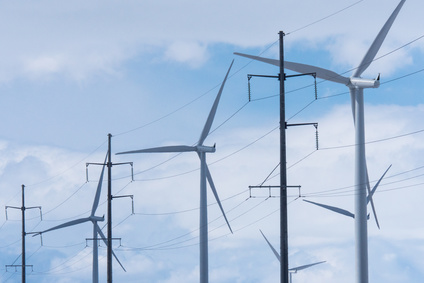Albertans in for a shock over power plans

Politicians have a habit of creating crises, then spending money they don’t have in an attempt to “fix” self-created policy problems, and then skipping over important details — such as transparency about the total cost of such self-inflicted financial wounds.
For the latest example, consider the Alberta government’s attempt to reduce carbon emissions.
Last November, the provincial Climate Leadership panel released its report on carbon emissions, and the province quickly accepted its main suggestions, including raising the carbon tax from $15 a tonne (in effect since 2007) to $30 a tonne by 2018, and the early shutdown of coal-fired electricity.
The November report had a few estimates of costs for Albertans, but the numbers were far from complete. The report estimated that electricity consumers would pay an extra $480 by 2018 and nearly $1,000 extra by 2030. That assumes early estimates of future costs are always accurate — not the case in other jurisdictions that have trod this path. Regardless, the report recommended that the government subsidize lower and middle-income Albertans, to soften the extra cost.
The recent provincial budget confirmed such plans and added more numbers. However, as with the November report, the budget was silent about certain coming multibillion dollar costs pointed out by others who know Alberta’s electricity system better than any governing politician.
The budget confirmed the province’s plan to raise carbon taxes and compliance payments, by $2.6 billion annually when fully implemented, or $9.6 billion in total over the next five years. That new tax increase will only be partially offset by a reduction in the provincial small business tax rate, of $865 million in total over five years. In short, Albertans will face a total tax hike of $2.4 billion annually, or roughly $8.8 billion over five years.
Here’s how the province plans to spend the taxes over the next five years: $2.3 billion for consumer rebates and $6.2 billion for subsidies to spur renewable energy projects and energy efficiency. The province also budgeted $195 million for spending on native reserves and some portion of that figure “for coal community transition.”
That last reference is the only one in the budget to the cost of phasing out Alberta’s coal-fired electricity generation early. It is here that transparency is lacking on the total costs to come — for consumers, businesses, and possibly taxpayers.
Left unmentioned is what that early coal kill-off means in terms of compensation to utility companies for stranded investment in electricity plants now fired by coal. Back in January, electricity experts from EDC Associates estimated that compensation costs could be as high as $15 billion. That was skipped over in the provincial budget.
Such unaccounted-for costs mean either even higher taxes in the future, or higher-than-estimated electricity prices, which could lead to ever-higher subsidies to consumers.
The irony of all this — the policy merry-go-round where carbon taxes are hiked by $9.6 billion to be only partially offset by a small business tax cut one-tenth of that size, followed by massive subsidies to consumers to offset higher power bill costs, with billions in carbon tax dollars sent to renewables to replace cheaper electricity generation, and a shutdown of coal communities with ephemeral compensation there — is that it is unnecessary. Coal-fired electricity generation in Alberta accounted for 66 per cent of installed capacity two decades ago and 38 per cent last year. It was forecast to decline to just 10 per cent by 2034. But then the new Alberta government decided it needed to kill off coal early and get to zero by 2030.
The provincial government’s self-created electricity market mess is leading to less investment in the sector and higher-than-necessary prices — that, in addition to billions in extra carbon taxes and billions on subsidies, and the as-yet unknown billions to be spent on compensation for stranded capital.
Mark Milke is a Associate Researcher at the Montreal Economic Institute and the co-author of “Green Energy Subsidies: Is Alberta Jumping on the Bandwagon?” The views reflected in this op-ed are his own.

